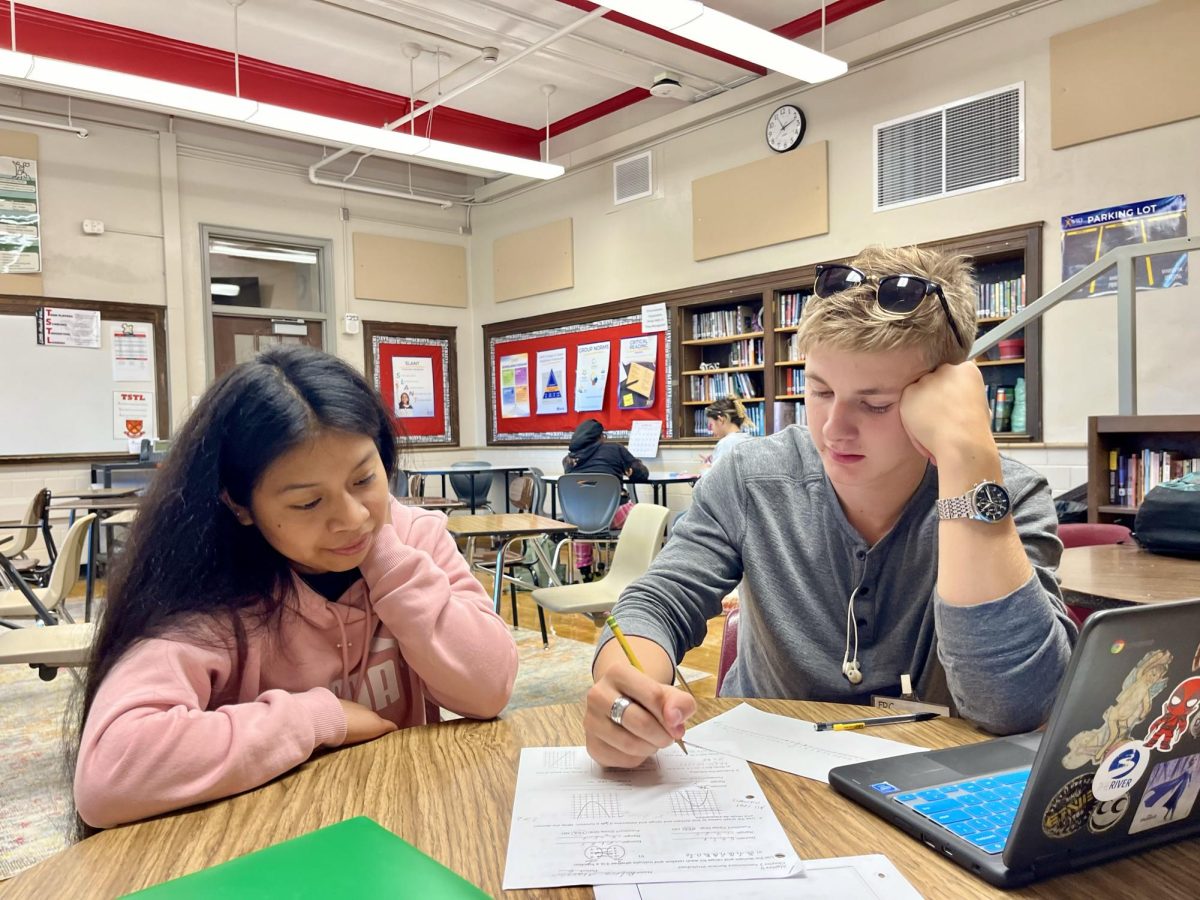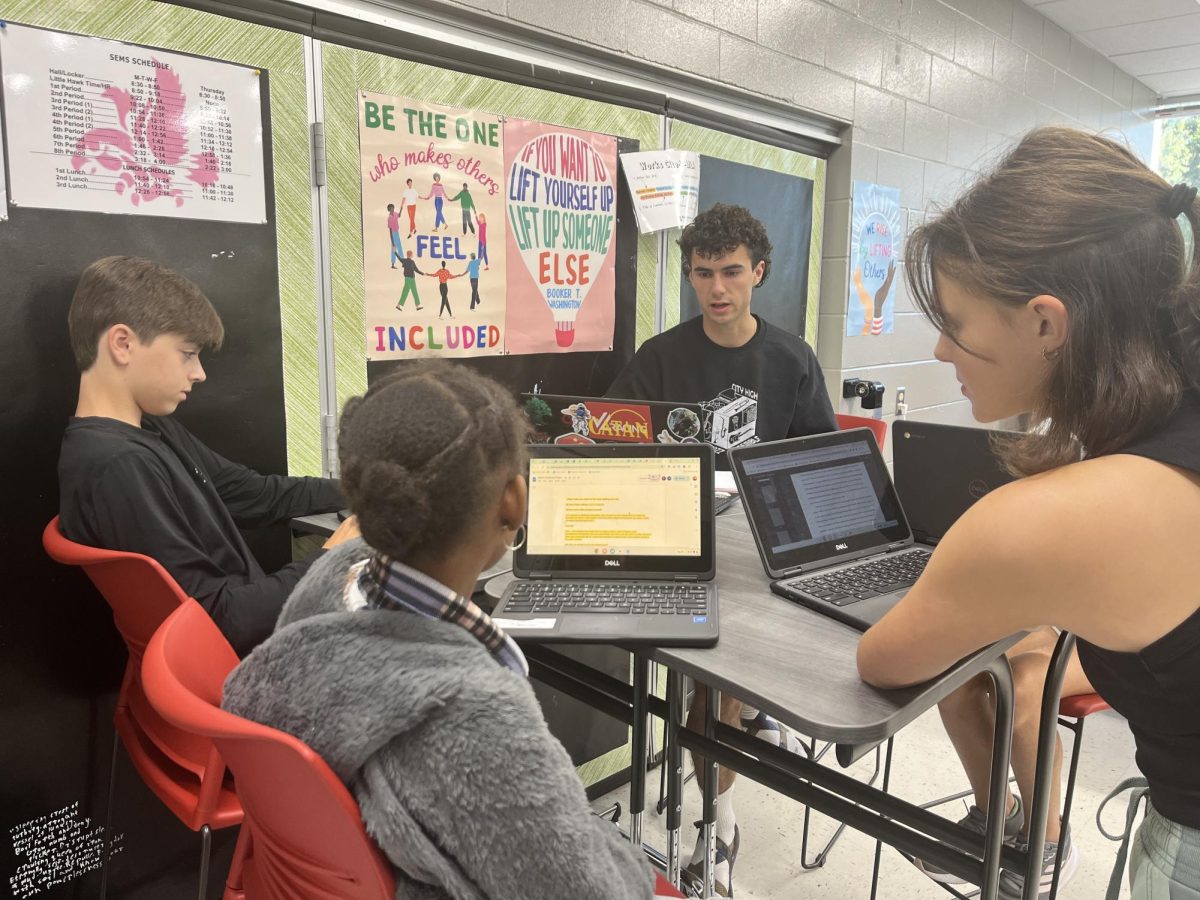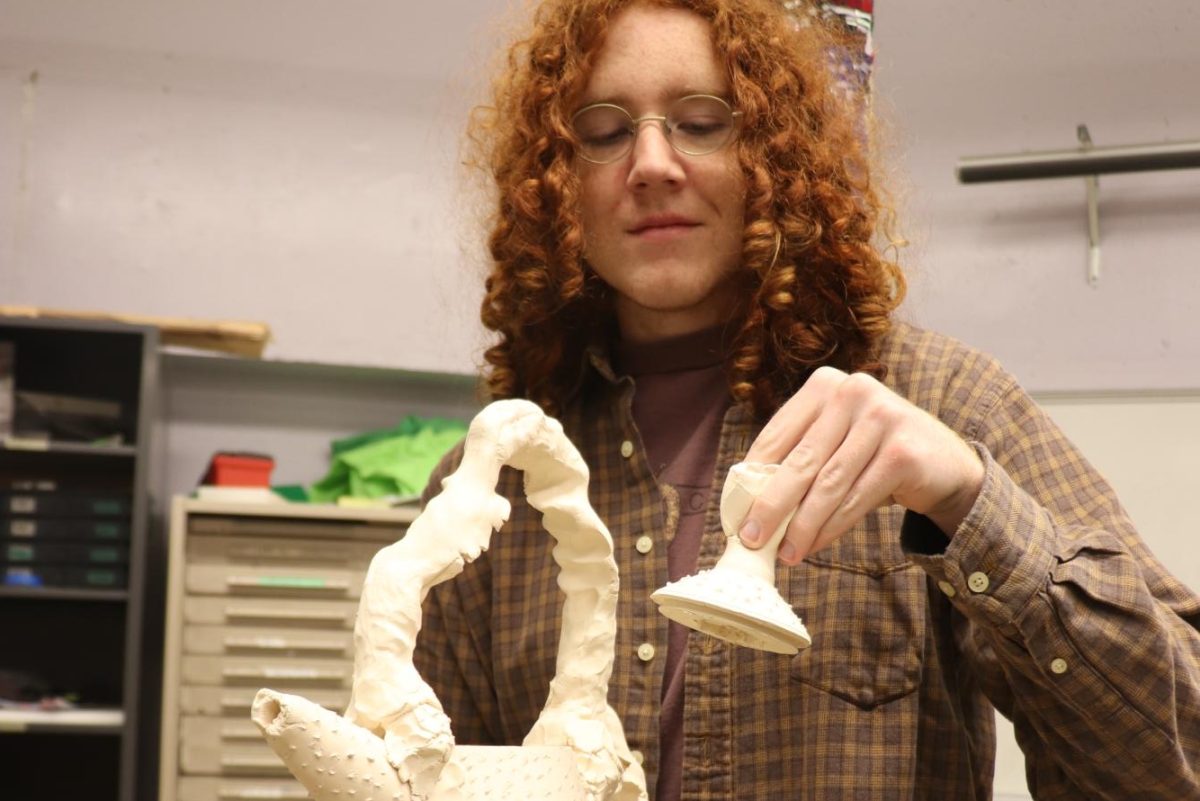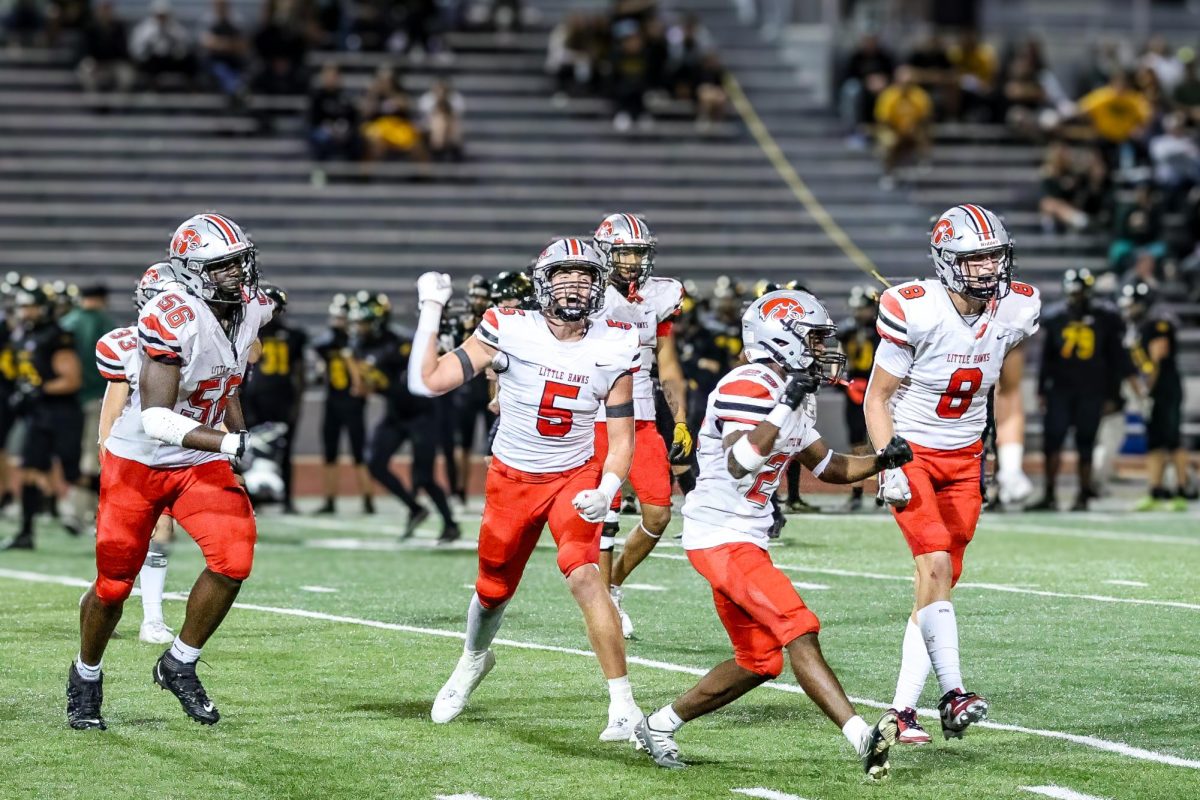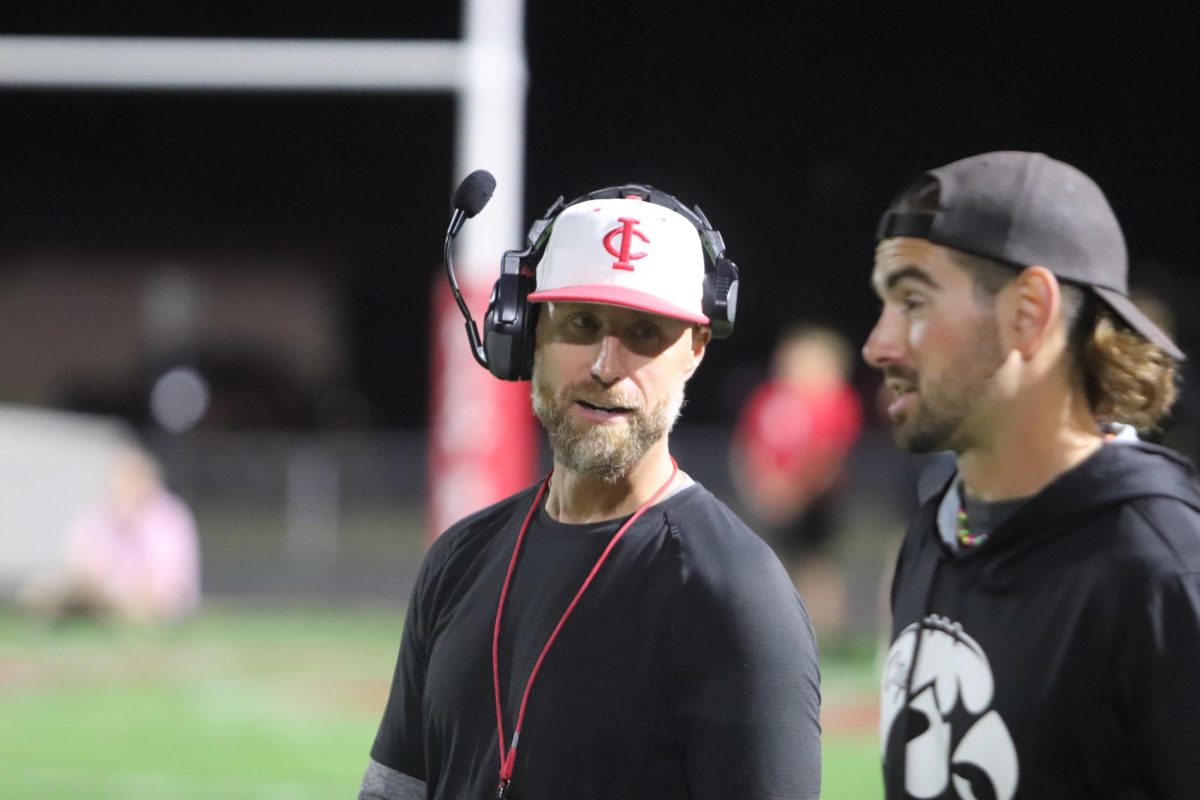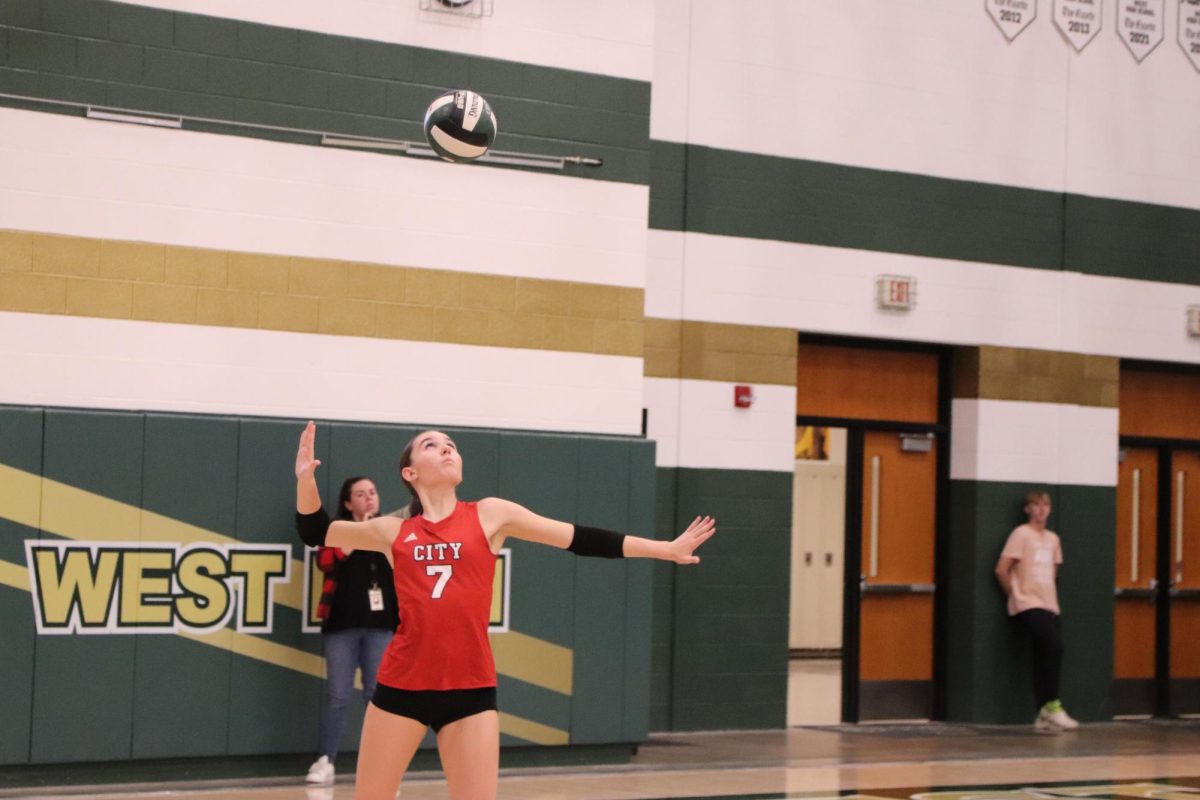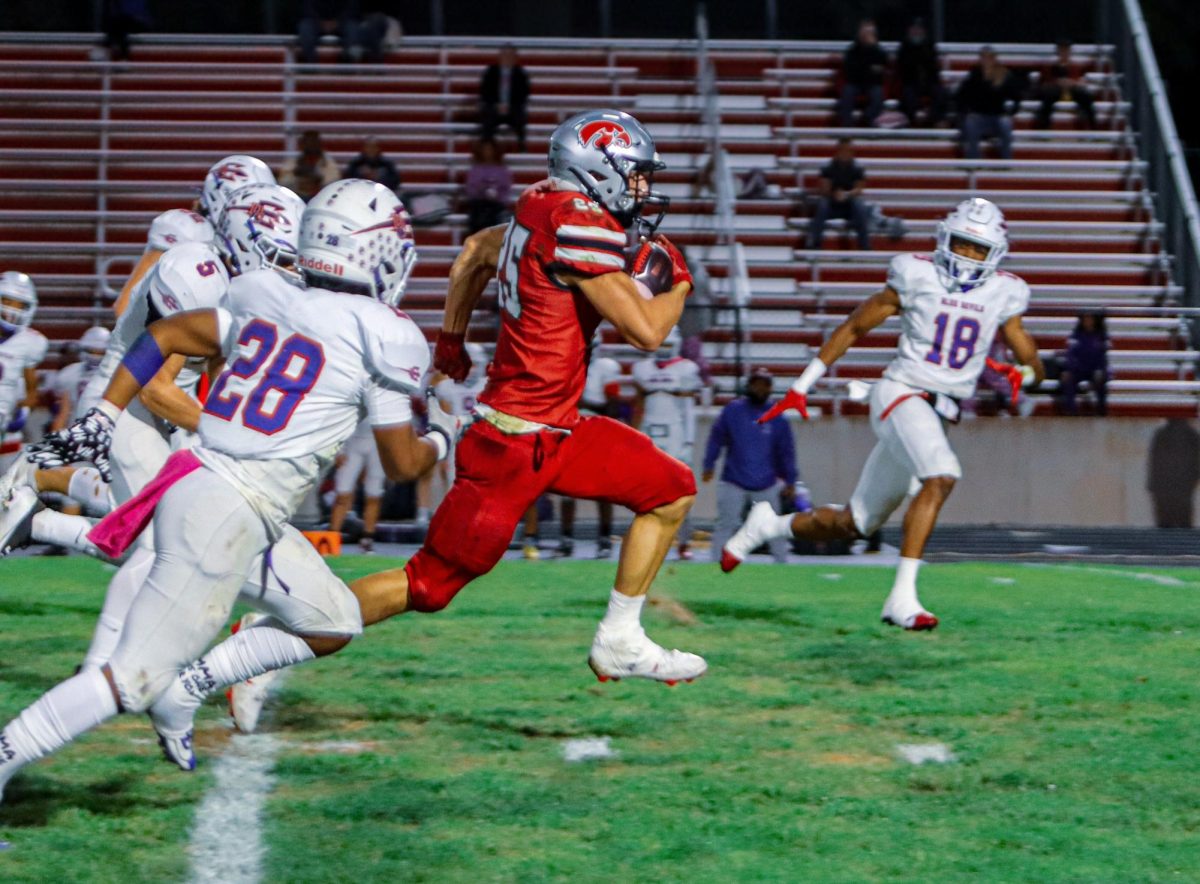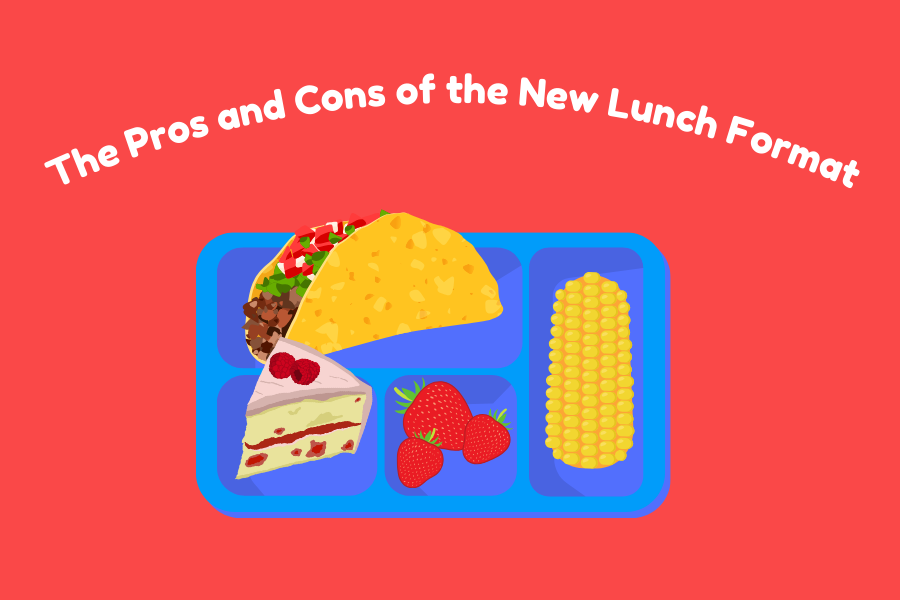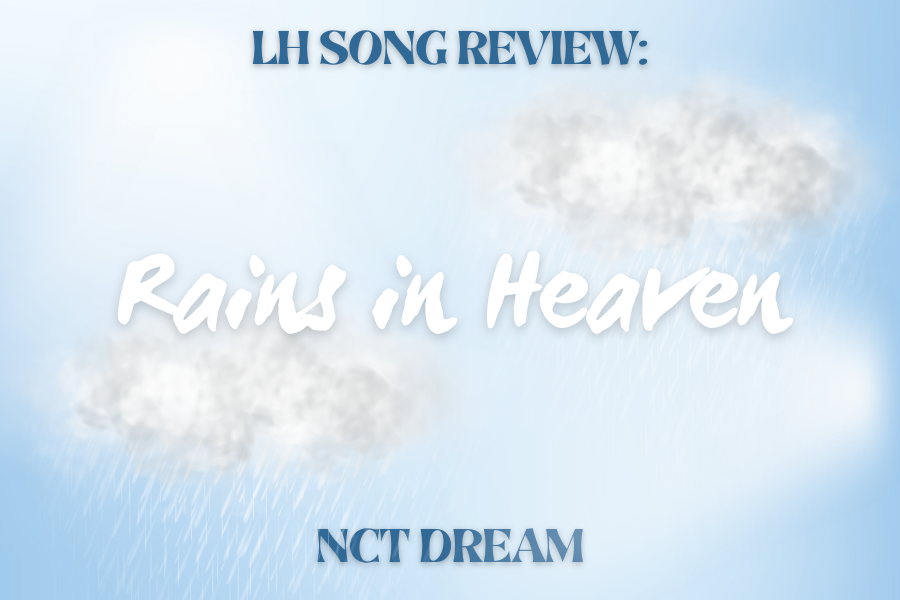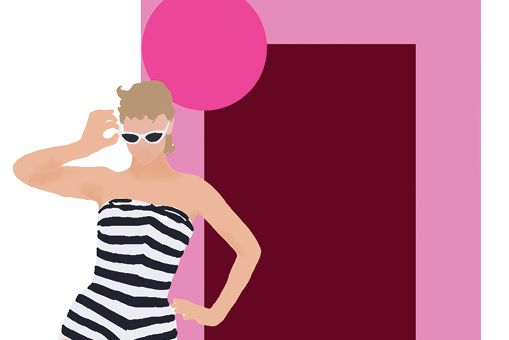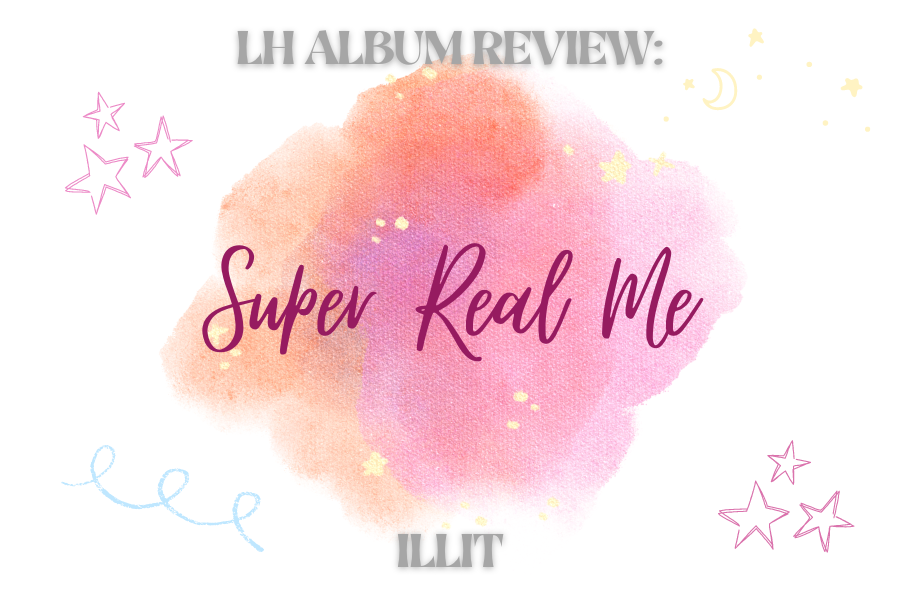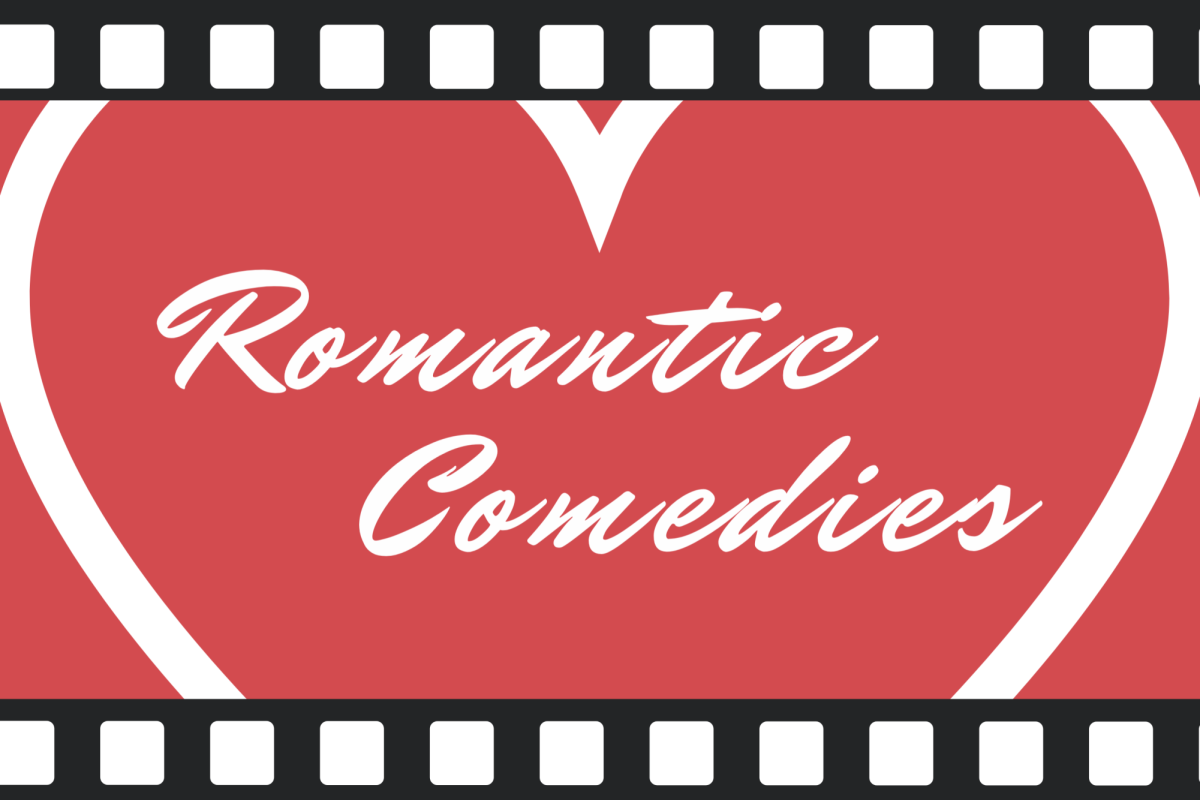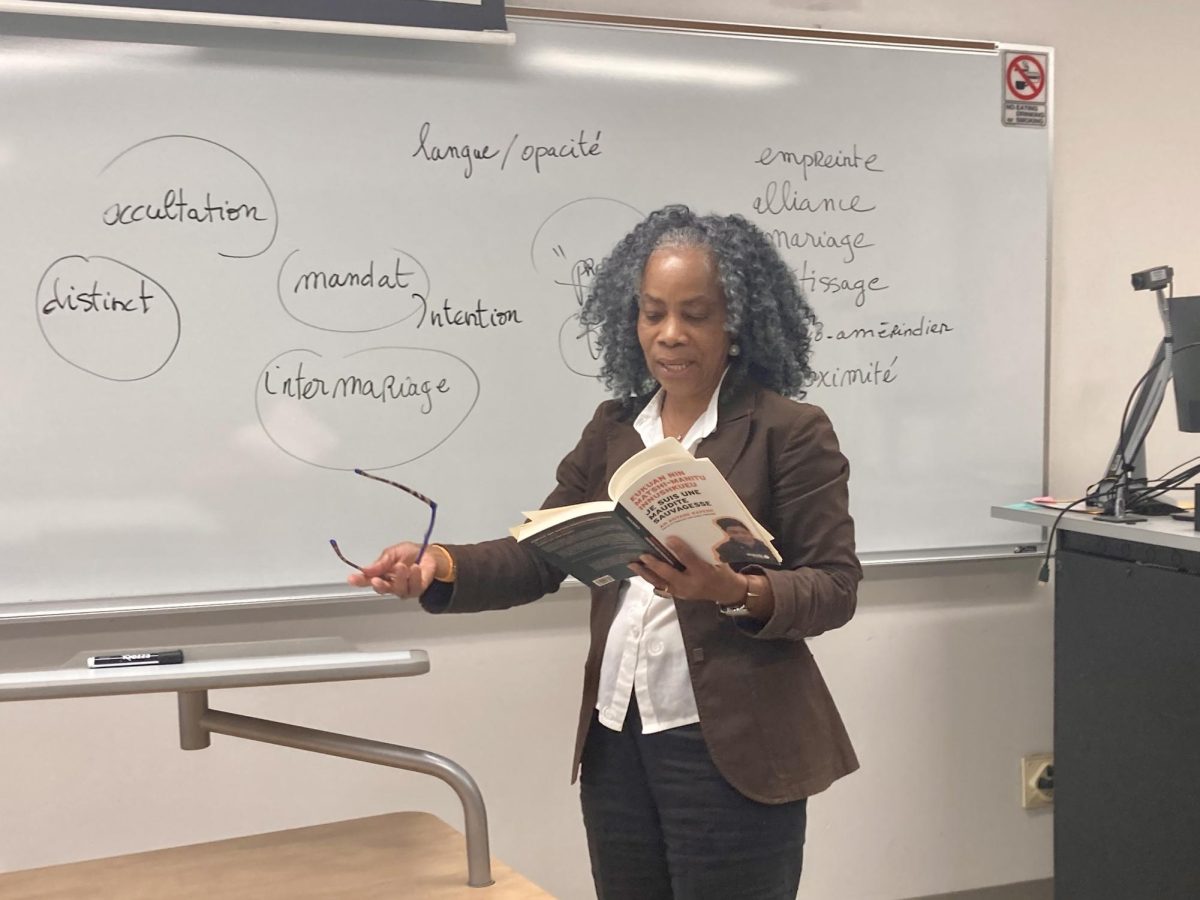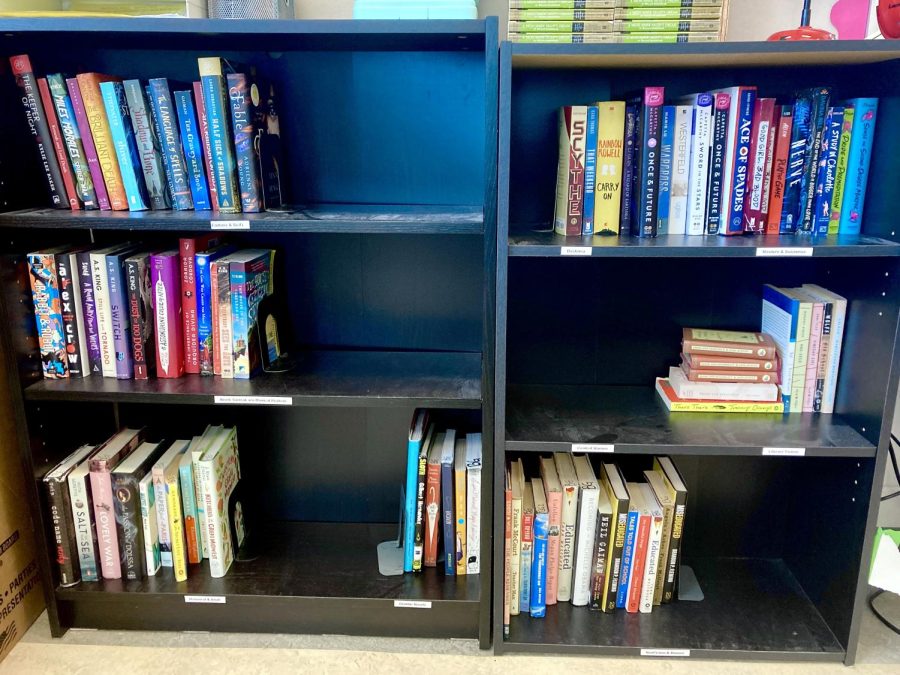Haunted Bookshelf
Empty spaces haunt the bookshelves in my English classroom.
June 6, 2023
One afternoon, walking into my English classroom, I see that books have been removed from their shelves and placed on the counter. At first, I assume the change is temporary and the books will soon be back in their usual places. But then I learn that the books in the pile will be moved out of the classroom–and out of the building–in anticipation of a new law that will fundamentally change what books are allowed in school.
Now the bookshelf is haunted: haunted by words, haunted by stories that will never be told within the walls of the school. Ghosts are spirits, but they are also constituted by absence. The ghosts of the books will haunt the bookshelf. Their titles will run through the minds of teachers and librarians and book lovers, an endless loop of wishful, wonderful, impossible recommendations. Whole worlds evaporated, vast possibilities unexplored.
I am 16 years old, and I see the world changing around me. Books are being banned in Iowa. I find it difficult to wrap my mind around the significance of this fact. Censorship of books has always been a major symbol of oppression in literature and in the media. Removing books, banning books, burning books–these actions were once almost satirical in their ubiquity as proof of despotism. We readers could only conclude that a book-banning government must be tyrannical. But in 2023, we are not living in a novel; we are living in a new era.
For some years now, I’ve been meaning to read The Bluest Eye, a classic novel published in 1970 that discusses what it means to be Black in a majority-white country and also features themes of sexual abuse. But now I will not be able to read this book at school. It is the fourth most banned book in the United States, according to CBS News. It is banned in public schools despite the First Amendment. I am troubled by the words of its author, Toni Morrison, who wrote of how she contemplated “with dread the erasure of other voices, of unwritten novels, poems whispered or swallowed for fear of being overheard by the wrong people. . . As though a whole universe is being described in invisible ink.”
I will read The Bluest Eye, and I urge all of you to read it, too. We must fight against this erasure of human experience. We can protest and support of overturning the law before it takes effect next year. But just as importantly, we must fight in our day-to-day lives by reading the books that have been removed. Otherwise, by forgetting the worlds of the books, we will remain trapped in a cycle of turmoil and destruction in which we lose sight of our values and our goals. We will be haunted by our inaction.

